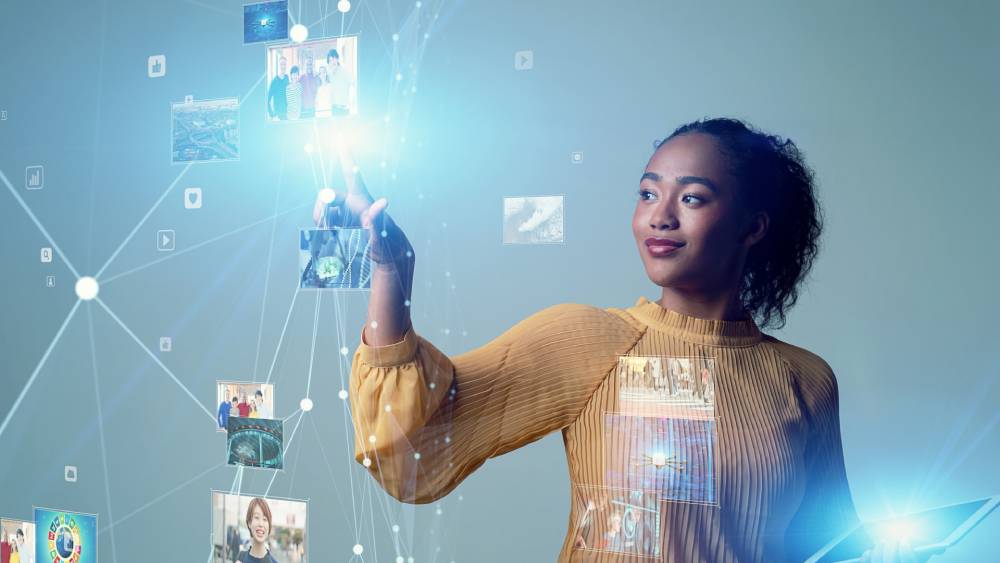
In today’s fast-paced world, businesses need to embrace technological advancements to stay competitive. The future of the workplace lies in the integration of technology to improve productivity, collaboration, and communication. In this comprehensive guide, we will explore the latest trends in workplace technology and how they will shape the future of work.
Introduction
Technology is an ever-evolving field that has transformed the way we work. The COVID-19 pandemic has accelerated the adoption of technology, forcing businesses to adapt to new ways of working. The future of the workplace will continue to be shaped by technology, and it’s crucial for businesses to stay ahead of the curve to remain competitive.
The Rise of Hybrid Work
Hybrid work has become increasingly popular, and it’s here to stay. The pandemic has accelerated the adoption of hybrid work, and businesses have realized that it’s possible to maintain productivity while working hybridly. However, this format isn’t without its challenges. Communication discrepancies frequently emerge, as technical glitches or unclear audio can leave remote attendees feeling disconnected or excluded. Since hybrid work is a trend, upgrading your AV equipment in your local meeting room becomes necessary. ASTROS Conference is definitely your top choice to solve the issues.
ASTROS Conference eliminates the need for cables and adapters during video conferences. For people in the local meeting room, all the host needs to do when the meeting starts is click on the ASTROS Pod. This action will wirelessly connect their laptop to the room’s camera, microphone, and speaker. ASTROS Conference is compatible with most video conferencing peripherals, allowing users to opt for audio-visual external devices for higher quality sound and images. The easy setup and the option to bring your own device to join the video conference also enhance meeting efficiency. If you want to know more about ASTROS, welcome to Contact Our Experts for suggestions.
The Internet of Things (IoT)
The Internet of Things (IoT) refers to the connection of everyday devices to the internet. IoT devices can communicate with each other and with humans, providing real-time data that can be used to optimize workflows and improve decision-making. IoT technology can also be used to create smart offices, where devices are interconnected and can be controlled remotely.
Artificial Intelligence (AI)
Artificial Intelligence (AI) is becoming increasingly prevalent in the workplace, transforming the way we work. AI-powered tools can automate repetitive tasks, freeing up employees’ time to focus on more strategic work. AI can also optimize the quality of video conferences. For instance, the integration of AI technology is revolutionizing video capture by seamlessly identifying physical movements and speech exchanges among meeting participants. This innovation enables pan, tilt, and zoom (PTZ) cameras to follow presenters seamlessly, track team conversations, and adjust with each speaker’s turn. AI-enabled cameras, combined with ASTROS Conference, can significantly enhance the quality of video conferences.
Augmented Reality (AR) and Virtual Reality (VR)
Augmented Reality (AR) and Virtual Reality (VR) are technologies that allow users to interact with digital content in a physical environment. AR and VR can be used to create immersive training experiences, allowing employees to practice real-world scenarios in a safe and controlled environment. AR and VR can also be used to enhance collaboration, allowing remote teams to work together in a virtual environment.
Cybersecurity
As businesses increasingly rely on technology, the importance of cybersecurity continues to grow. Cyber threats can lead to data breaches, resulting in severe financial and reputational consequences. As a wireless conferencing solution, ASTROS Conference places a strong emphasis on cybersecurity. We implement robust encryption mechanisms. For instance, you can activate WPA2 encryption to enhance your network’s security. Additionally, ASTROS utilizes TLS encryption for all communications, as well as authenticated encryption for video and audio communications. Moreover, we provide several password-protected logins for settings and management. Businesses must invest in cybersecurity measures to safeguard their own data and their customers’ data.
Conclusion
The future of the workplace is exciting, and technology will continue to play a significant role in shaping it. Businesses need to embrace technological advancements to remain competitive, and they need to stay ahead of the curve to ensure they don’t fall behind. The rise of hybrid work, IoT, AI, AR and VR, and cybersecurity are just some of the trends that will shape the future of work. By embracing these technologies, businesses can improve productivity, collaboration, and communication, ultimately leading to a more efficient and effective workplace.